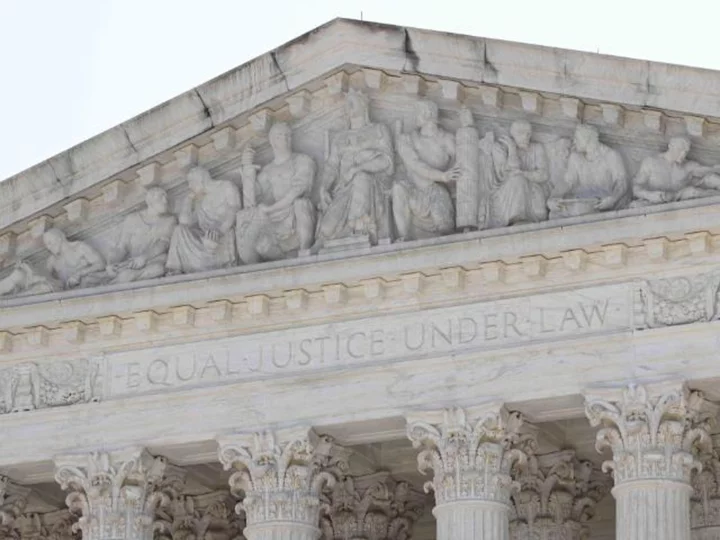The Supreme Court on Thursday upheld the conviction of a federal prisoner who argued he should be able to challenge his 27-year sentence for firearms possession based on changes in the law since his trial.
The court's decision will make it harder for federal prisoners to bring certain types of post-conviction challenges.
Justice Clarence Thomas wrote the 6-3 opinion in the case. The three liberal justices, Elena Kagan, Sonia Sotomayor and Ketanji Brown Jackson, dissented.
"Because of how Justice Thomas and the other conservative justices read the relevant statutes and the Constitution, there will now be a significant number of federal prisoners who are unable to bring potentially meritorious collateral challenges to their convictions and sentences once their direct appeal has ended," said Steve Vladeck, CNN Supreme Court analyst and professor at the University of Texas School of Law.
Marcus Jones was convicted in 2000 of two counts as a felon in possession of a firearm and one count of making false statements to acquire a firearm. At trial, he said he knew he had previously been convicted of a felony, but he thought his record had been wiped clean. Nevertheless, the jury was not told that it had to find that Jones knew he was a convicted felon. Eventually, he was sentenced to 327 months for unlawful possession of a firearm by a felon and 60 months for making false statements.
In 2002, he went back to court and filed what is called a 2255 motion meant to challenge his original conviction, but he lost.
Seventeen years later, in a case called Rehaif v. United States, the Supreme Court narrowed the felon in possession statute. The court held that the government has to prove the defendant knew he was still a felon at the time of his new offense in order to convict him.
Jones appealed in federal court hoping to wipe away his felon in possession of a firearm conviction. He cited the Rehaif decision in his petition, noting that the Supreme Court had changed the rules. Lower courts ruled against him.
In Thursday's opinion, the court ruled against him as well, holding that under 2255 there are limited conditions in which Congress has permitted federal prisoners to bring second or successive collateral attacks on their sentences.
"The inability of a prisoner with a statutory claim to satisfy those conditions does not mean that he can bring his claim in a habeas petition under the savings clause," Thomas wrote in his majority opinion.
"It means he cannot bring it at all. Congress has chosen finality over error correction in his case," he said.
Sotomayor and Kagan, in a jointly written dissent, argued that the majority opinion "yields disturbing results."
A prisoner who is "actually innocent, imprisoned for conduct that Congress did not criminalize" is forever barred from raising that claim "merely because he previously sought postconviction relief," they wrote.
Jackson filed her own dissent. She said that because the Rehaif case "changed the scope of a criminal statute" it should apply "retroactively to individuals (like Jones) whose conviction had become final at the time it was issued."
She wrote that she was also "deeply troubled by the constitutional implications of the noting-to-see here approach that the majority takes with respect to the incarceration of potential legal innocents."
This story has been updated with additional details.

